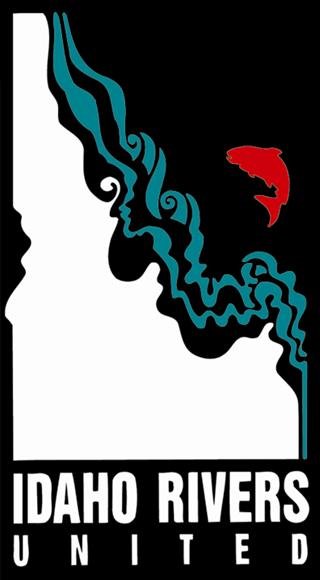What you need to know about Idaho's steelhead closure
The Idaho Department of Fish and Game Commission recently closed Idaho’s steelhead season effective December 7, 2018. This is a challenging issue as we value our friends and supporters. We also realize that Idahoans make a good portion of their living from steelhead guiding during the lean winter months. Equally challenging is the deplorable state of Idaho’s wild salmon and steelhead species. We are now in year three of a dramatic downturn of returns and next year could be even worse. Idaho Rivers United would like to offer some clarification about this decision and what it means for Idaho’s communities and fish.
Idaho Fish and Game operating without a steelhead management plan is illegal.
Under the Endangered Species Act, management agencies must have a management plan for incidental take of a species. Once IRU was made aware that the Idaho Fish and Game was operating steelhead fishing seasons without a plan, we filed a 60-day notice. This notice was to serve as incentive for them to follow the laws clearly outlined in the Endangered Species Act and to pull back the curtain on illegal operations.
IRU did not sue the Idaho Department of Fish and Game. There is not a lawsuit.
A 60 day notice was sent to the IDFG mid-October for not having an active Endangered Species Management Plan. In 2009 the previous steelhead management plan expired. Idaho failed to renew its steelhead management plan – this is required under the Endangered Species Act due to the incidental take of listed fish during the steelhead fishing season. The 60-day notice was meant to light a fire under Idaho to follow the law. We were confident that given the notice, Idaho and the federal government would finish the plan within the 60 day timeframe. NOAA fisheries released the new draft steelhead management plan to Idaho the first of November.
The Commission’s decision to close Idaho’s steelhead season was theirs and theirs alone.
The Idaho Fish and Game Commission is appointed by the Governor and are responsible for supervising the Department of Fish and Game; establish regulations and other needed controls on fishing. The decisions made by the Commission are theirs and theirs alone. Diverting blame only distracts from the real issue, our fish policy continues to fail us.
A decline in steelhead returns rests entirely on the shoulders of the federal government and our Governor for binding Idaho to a failed status-quo salmon recovery plan.
The Bonneville Power Administration Accords is a legal document binding signatories to the federal status-quo of salmon recovery in exchange for monetary funds for salmon recovery. The federal plan is failing Idaho and our fish as we have not seen significant increases in species returns since enacting this plan. The Accords do not allow Idaho to have an independent voice to speak for Idahoans needs. Our rural economies are suffering because there are not enough fish in our rivers, and yet Idaho can only stick with business as usual. The state of Idaho has stayed silent for 10 years on a dying fish population and Governor Otter just doubled down by agreeing to extend the agreement for an additional four years.
There are significant biological and economically considerations to closing a steelhead season.
Steelhead are an endangered species. The returns this year are some of the worst Idaho has seen in decades. However, steelhead are also an economic necessity to many of the rural communities of Idaho.
IRU wants Idaho’s fish to return and Idaho’s communities to flourish.
IRU has championed salmon and steelhead for the entirety of our existence. We know that Idaho’s rural economies depend on them. We have always said, salmon and steelhead mean business. This season has been particularly awful for steelhead and all of Idaho’s endangered anadromous fish. The migration corridor to and from the Pacific Ocean is impeded by four high cost and low value dams on the Snake River. These dams cause massive stress for our migrating smolts and returning adults. While ocean conditions add additional stress to these fish, those stresses are really only consequential because their migration to the ocean is so dangerous due to the dams.
We are here to answer your questions and believe this should be a conversation between all stakeholders. We encourage you to reach out to Governor Otter, Governor-elect Brad Little and your local legislators to express your concerns. As Idaho continues to remain silent on this issue, we continue to lose these iconic species and along with them Idaho business.

